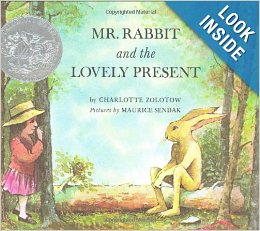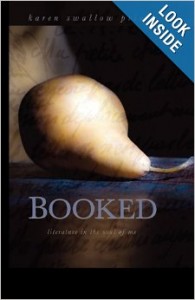This idea is genius! Jessica Crispin at Bookslut has come up with the idea of a book award that goes back in time to correct and adjust the mistakes of past years of book awards. As a beloved literature professor once told us, the definition of a classic (or a book that should be “award-winning”) is a book that stands the test of time. So, starting with 1963, fifty years ago, the Daphne Awards will be given to those books that have lasted and still speak to today’s readers.
If you look back at the books that won the Pulitzer or the National Book Award, it is always the wrong book. Book awards, for the most part, celebrate mediocrity. It takes decades for the reader to catch up to a genius book, it takes years away from hype, publicity teams, and favoritism to see that some books just aren’t that good.
Which is why we are starting a new book award, the Daphnes, that will celebrate the best books of 50 years ago. We will right the wrongs of the 1964 National Book Awards.
The Daphne awards have four categories: fiction, nonfiction, poetry, and children’s literature. Of course, I’m most interested in the last category. First, I thought I’d look to see what children’s books, published in 1963, won awards:
Caldecott Award: Where the Wild Things Are by Maurice Sendak.
Caldecott Honor Books: Swimmy by Leo Lionni.
All in the Morning Early by Evaline Ness.
Mother Goose and Nursery Rhymes by Phillip Reed.
It must be remembered that the Caldecott Medal is given for “most distinguished picture book,” majoring on the excellence of the illustrations in the book. I’m assuming that the Daphne Awards are more literary in nature.
Newbery Medal: It’s Like This, Cat by Emily Cheney Neville
Newbery Honor Books: Rascal by Sterling North and The Loner by Ester Wier.
Carnegie Medal: Time of Trial by Hester Burton. (Never heard of it or her)
Kate Greenaway Medal: Borka: The Adventures of a Goose With No Feathers by John Burningham. I have heard of Mr. Burningham and read some of his picture books, but not this one. Wikipedia says Borka was his debut book, and from the description, quoting Kirkus Reviews, it doesn’t hold up to the American offerings for the year 1963. “Borka is an ugly duckling who does not undergo a transformation; she is as bald as a goose as she was when a gosling. … The freely stylized illustrations in bold lines and appropriate, vivid colors are many and strong.”
The National Book Awards didn’t have a children’s literature category until 1969.
Other popular and distinguished children’s books published in 1963:
Amelia Bedelia by Peggy Parish. Excellent beginning reader that has stood the test of time.
Hop on Pop by Dr. Seuss. Not my favorite Dr. Seuss, but a popular entry.
Stormy, Misty’s Foal by marguerite Henry. Another book that is still popular among the horse-lovers.
I Am David by Ann Holm. A twelve year old boy escapes from prison camp in Eastern Europe. Cold War literature that I’d like to go back and re-read to see if it stands the test of time.
Time Cat by Lloyd Alexander. I’ve read this one, but I don’t remember it.
Curious George Learns the Alphabet by H.A. Rey.
Sister of the Bride by Beverly Cleary. What we would call YA romance nowadays without all the angst and sex.
The Winged Watchman by Hilda von Stockum. Excellent WW2 adventure fiction, written by a Dutch-American author and published by Farrar Strauss and Giroux in English in January, 1963.
The Bat-Poet by Randall Jarrell. I had forgotten about this one, a lovely little story with illustrations by Maurice Sendak. Mr. Sendak was rather busy in 1963 (see below).
Now the Daphne shortlist for Young People’s Literature published in 1963:
The Dot and the Line by Norton Juster
Where the Wild Things Are by Maurice Sendak
Mr. Rabbit (and the Lovely Present) by Charlotte Zolotow. I don’t know why they left off the last four words in the title.
Harold’s ABC by Crockett Johnson
Lafcadio, the Lion Who Shot Back by Shel Silverstein
The Moon by Night by Madeline L’Engle
Encyclopedia Brown, Boy Detective by Donald J. Sobol
Gashlycrumb Tinies by Edward Gorey
If I were choosing from that list, I’d have to go with Mr. Rabbit and the Lovely Present or with Encyclopedia Brown, Boy Detective. Where the Wild Things Are is a wonderful story, but Mr. Rabbit and the Lovely Present (illustrated by who else but Maurice Sendak?) should have been at least honored, and Encyclopedia Brown still lives! I love Madeleine L’Engle’s books, all of them, but I’m not sure The Moon By Night was her best, just as Lafcadio wasn’t Shel Silverstein’s finest either. The two others are by authors I know, Edward Gorey and Norton Juster (The Phantom Tollbooth), but I don’t know the books.
WINNER (if I’m choosing): Mr. Rabbit and the Lovely Present by Charlotte Zolotow.

